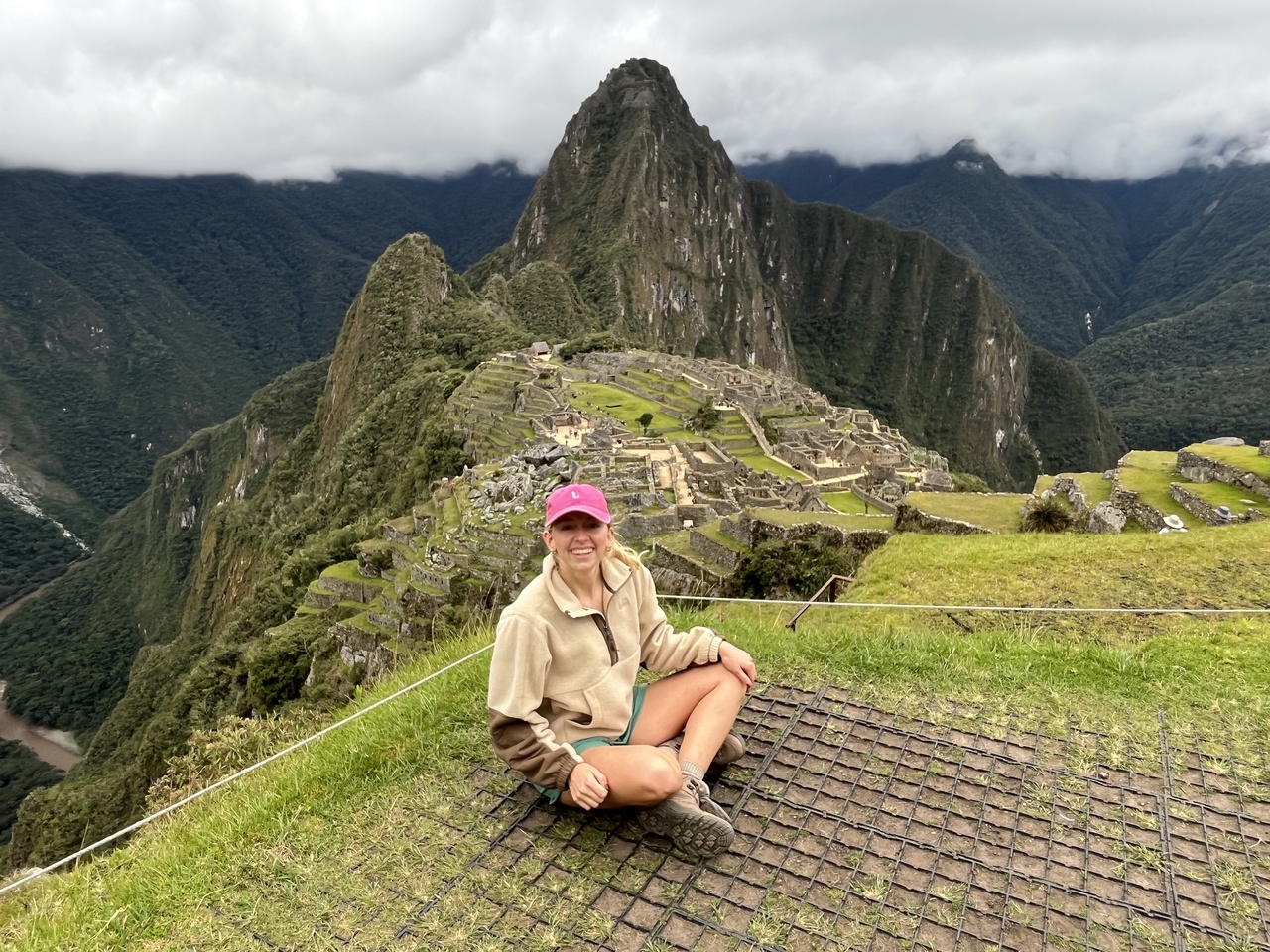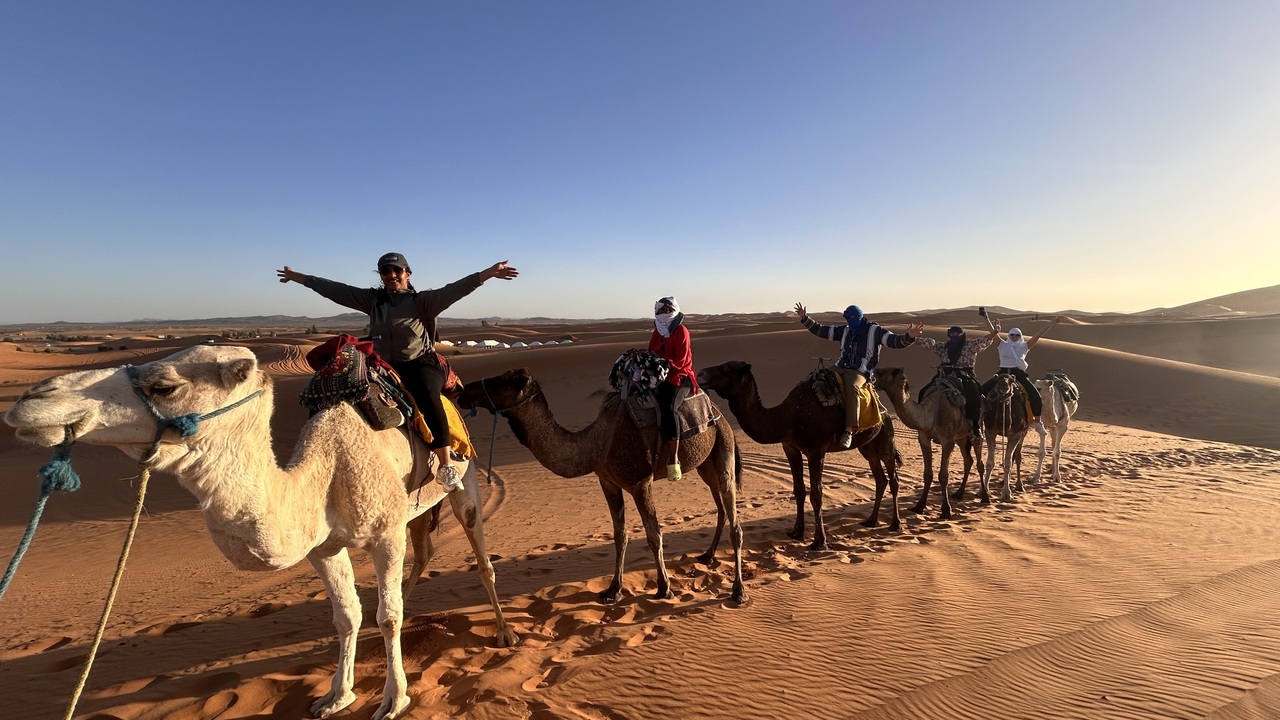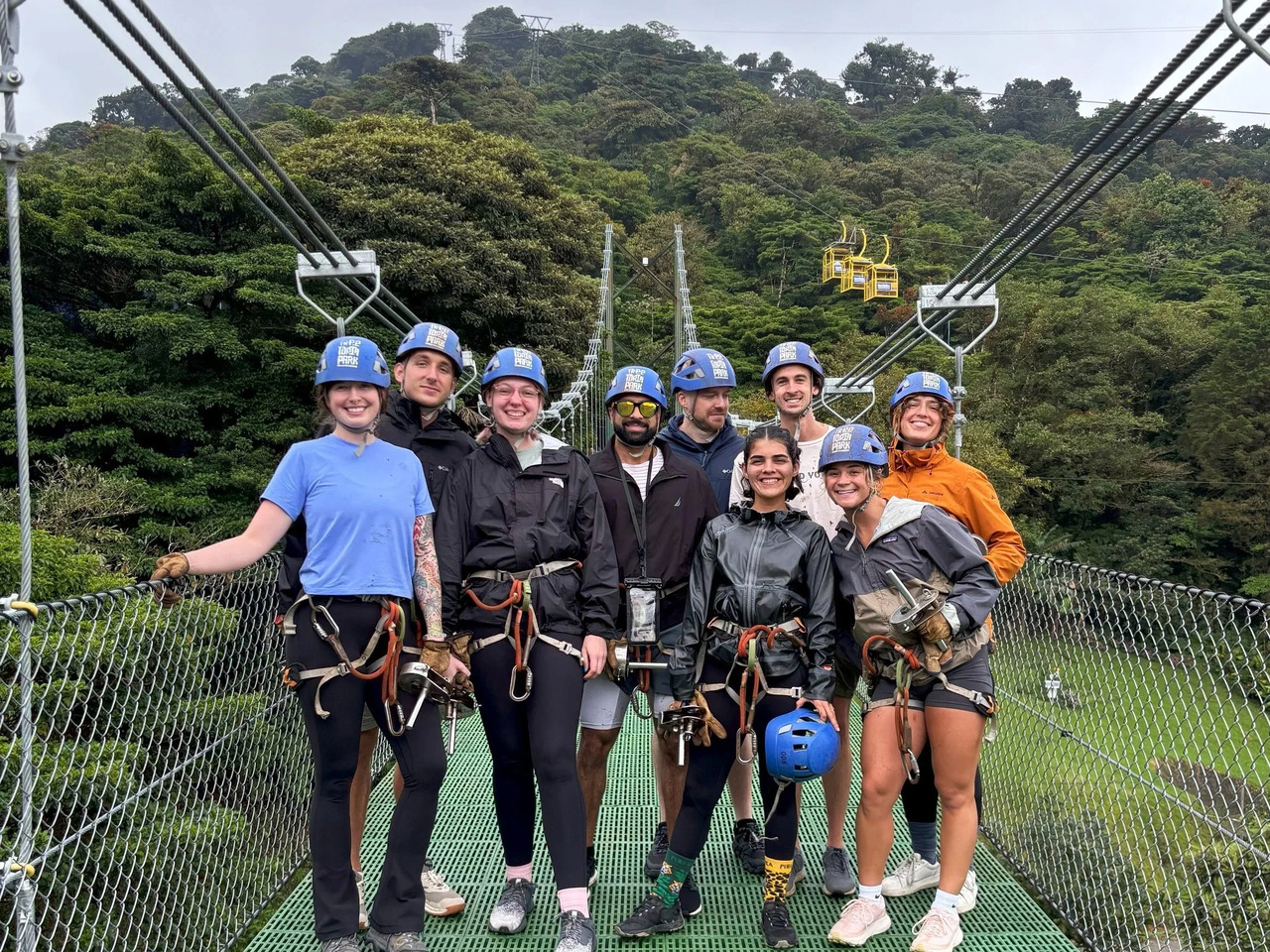It’s always the right time to do the things you've wanted to to but it may not always feel that way.
Most people are waiting for the right time to do X: the right time to quit a soul-sucking job, the right time to end a toxic relationship, the right time to get in shape...
Or, the right time to travel the world.
The truth is, there is no "perfect" moment where you feel feel absolutely comfortable putting everything on hold. Travel is one of those things where you just have to go out and do it.
This extensive guide will help you make the leap and enable you to take that trip you've been dreaming of while extinguishing unnecessary stress.
The first 3 items on this list may seem difficult at first buy they're essential “first steps” to set your intention and put your plan in motion.
The rest of the items will help you become a more prepared, savvy traveler who knows that anticipation is key to success.
Pick a place & do the research

A lot of people talk about how they want to travel more but they never take any solid steps to work towards that goal. Maybe because they feel overwhelmed by the infinite options of beautiful locations to explore.
If this is what’s stopping you from going to awesome places I have an easy solution for you: just pick one place and GO!
It gets easier when you narrow it down and have a goal to work towards. It’s easier to say “I’m going to Cartagena, Colombia” than “I’m going somewhere in South America”.
Determine how long you will travel & how
The length of your trip and your style of traveling is going to determine how much money you need to invest in your experience.
5-day trip? 14-day trip? 1 month? 6 months? Budget travel? Backpacking? Luxury travel?......you get the point.
You don’t need to know exact dates but you should at least have a rough idea of what places you are going to visit, for how long, and the style of traveling you want to embark upon.
Put a number on how much you money you need & work towards it

Do your research about destination costs based on your style of traveling. This is going to help you determine your daily expenses and come up with a daily budget for your trip.
Let’s say that you do the numbers and you come up with a budget of $3,000 for your trip that is in 6 months. That’s only $16.66 per day.
If you already have that amount of money saved up, congratulations! You can now go ahead and start booking flights and hotels.
If you don’t, no worries. That’s why you are planning ahead.
How can you start saving $16.66 per day?
Here are some ways you can save money for your dream vacation:
- Cook at home and eat out less
- Sell your car
- Sell stuff you don’t need
- Get rid of cable
- Sign up for travel newsletters
- Cut coffee, alcohol, and cigarettes
- Cancel any inactive memberships
- Get a second job or more clients and save all the money you earn from it.
Get a passport or check passport expiration date

If you don’t have a passport, get one immediately. The whole process takes about a month. You cannot book flights without your passport number.
Check out the USA Department of State for more information about passport application.
If you do have a passport, make sure that it doesn’t expire within 6 months of your travels. You don’t want to be that person that gets stuck at the airport because of your passport expiration date.
Verify the country’s visa requirements
A visa allows you to enter another country.
No visa = No travel
Countries around the world have different requirements for visitors who want to enter — and it all depends on the country origin of your passport.
For US citizens, you can check the State Department website for details on the requirements of all countries.
Enroll in Global Entry Program
If you are U.S citizen, I highly recommend enrolling in the Global Entry program by U.S. Customs and Border Protection (CBP). You get to save time, skip the processing line, and even get access to expedited entry benefits in other countries.
Check CDC required shots/immunizations
The CDC travel website has a great list of countries and their required and recommended immunizations.
Get a travel credit card

There is only one reason to get a travel credit card: sign-up bonuses and free miles.
The moment you decide you want to travel is the moment you should get a travel credit card. In the months leading up to your trip you can start accumulating miles that can get you free flights, hotels, etc.
Don’t get carried away. You only need one.
The travel card I use is Chase Sapphire with 50,000 sign-up bonus points and no foreign transaction fees.
Book your flight
There’s a special way to hack booking flights and my friend Matt Wilson wrote a full article on saving money and finding cheap flights.
Also, check out these sites for last-minute deals:
Book your accommodations
I suggest you avoid the all inclusive resorts & opt for something that allows you to get a better taste of the culture and lifestyle of the locals. Plus, it's usually less expensive.
Airbnb, Couchsurfing & hostels are great options for this but they aren't always available. Here is a full list of options that provide great deals to help you feel comfortable no matter where you travel to:
Make sure that you book early to get a good deal on your top pick.
Buy travel insurance
Smart travelers get travel insurance because they know shit can happen while traveling and most health plans don’t cover you overseas.
My go-to travel insurance provider is World Nomads. They provide great coverage at a good price and they have amazing customer service.
Plan your activities

Plan out your bucket list activities, figure out how much they cost, and adjust your budget accordingly.
This will also help you figure out if you need any prior reservations for your chosen activities, as well as get you pumped for your trip.
Get familiar with local transportation
I have been in situations where I don’t know any better and get a taxi for $15 - $20 to take me to my hotel only to realize later on that I could have taken a much cheaper option like a train or bus (or free shuttle).
Before you get on the plane, take a look at where you are going, what neighborhood you are staying in, and the transportation options. Read up about how to use the transportation system, download digital maps for reference, and check operating times and schedules.
It is a wonderful investment of time because you will likely save money AND time in the future. Not to mention how much stress you may alleviate while learning more about the place you are visiting.
Automate your bills
You don't want to worry about bills while you are exploring your destination. Automate them to ensure you pay your bills on time and don’t incur in late fees.
Notify your bank and credit card company of your travel dates
Your debit and credit card are less likely to get blocked if you notify your bank and credit card company about your travels.
It’s not a good feeling having your card rejected overseas while you are trying to pay for dinner. It shouldn't take more than a few minutes so suck it up and make that boring call that will likely involve terrible music while you're on hold.
Notify your embassy & family about your travels
It’s always a good idea to notify your embassy about your travels so they can notify your family in case of emergency.
For US citizens, check out the SMART Traveler Program.
Also, let your family & friends know where you are going, when you are going, flights, and hotel info.
Emergencies can happen on both ends so it’s important to keep your loved ones in the loop.
Make copies of your passport, hotel reservations, travel tickets, and travel insurance (print and digital)
We live in the digital age but in many countries paper is still KING.
Copies of your passport are necessary in case you passport goes missing. You can show this to your embassy to start the process of getting another one & alleviate the stress of not having any documentation in a foreign country.
Copies of your travel insurance are also necessary in case you need medical assistance.
Some airport agents--like Costa Rica--will ask for your ongoing travel tickets.
Some hotels require that you print out the hotel voucher to present at check-in.
You can have all this information on your phone, but in case your phone isn’t working you can show physical evidence of your bookings, reservations, etc.
Overall, you should always have all of your confirmations at your fingertips.
Bring your driver's license
If during your trip you plan on renting a car to explore on your own, then you should definitely bring your driver’s license with you.
In this case, just a passport doesn't cut it.
Check airline baggage rules and restrictions
Be sure to follow your airline's baggage restrictions to avoid paying extra fees. Typically, your luggage can't weigh more than 50 pounds or else you incur an unreasonably large fee so make sure you weigh it beforehand so you're not stuck at the airport shuffling all your things around to get below the weight limit.
In some circumstances depending where you travel, you have to take an additional flight on a small plane to reach your final destination. Keep in mind that these airlines generally have much more strict luggage policies due to their smaller size so be sure you check their guidelines as well.
Adjust your cell phone plan or buy a SIM card abroad
International roaming charges can leave you with a steep bill at the end of your travels.
To avoid this, you should contact your phone company to adjust your cell phone plan so you can make and receive calls/text at a reasonable price.
Even with an adjusted cell phone plan, you should try to use WiFi as much as possible to avoid data fees.
The other option is to buy a cheap SIM card abroad but this only works if you cell phone is UNLOCKED. If your phone is locked by your carrier then you cannot just insert a new SIM. You must ask them to unlock your phone first, which will often have a fee.
Take out some cash a couple weeks before your trip
It’s always a good idea to have some cash with you in case of emergency.
I always travel with $500 cash: $300 in USD and $200 in local currency.
You can get local currency at your preferred bank. To stay up to date with the international exchange rates, I highly recommend downloading the XE app.
Pack and go have fun

Don’t know where to start packing? I got your back and just wrote The Essential Guide to Packing Like a Pro to make sure you are always prepared no matter where you go.
Or check out what the travel experts are saying to pack like a pro including tips from our very own Matt Wilson.
Once you are done packing, grab your passport and enjoy the journey!




.avif)


























